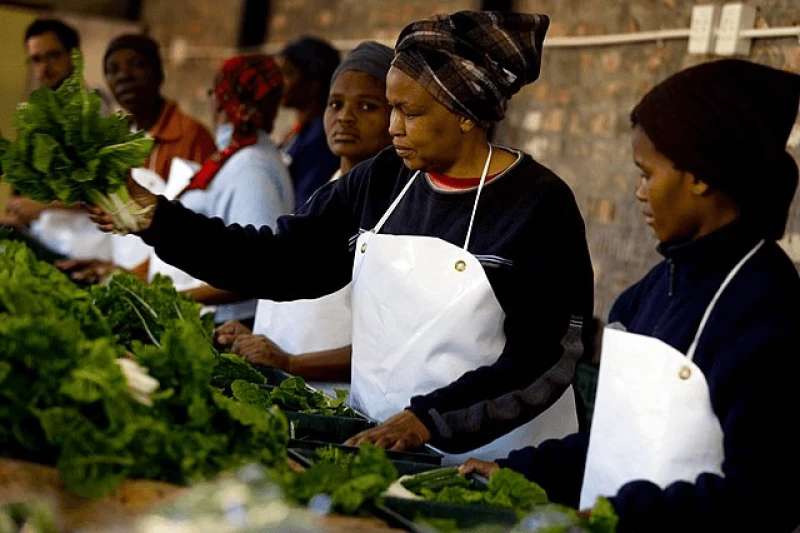As climate change devastation escalates across Africa, crop biotechnology innovation offers science-based help
As climate change devastation escalates across Africa, crop biotechnology innovation offers science-based help


Changing weather patterns including rising temperatures, increasing drought incidences, floods and the proliferation of plant diseases are some of its effects causing havoc on farmers worldwide.
Africa, home to half of the world’s smallholder farmers, is particularly vulnerable to these threats because of its high dependency on climate-related activities and very limited resources that constrain its adaptive capacity. The pressing question we face now in Africa is how to safeguard the food security of our people amid these challenges.
Failed rains and other impacts of climate change are making more African countries increasingly food-insecure. One promising solution that could be a game changer in achieving sustainable food and nutrition secure [in] Africa is the adoption of biotechnology and complementary innovative technologies at significant levels that can catalyse productivity transformation and improve food system resilience in the developing world in particular.
In the face of increasing threats from climate change and mounting food insecurity, the choice is clear for Africa: We must embrace biotechnology and complement it with a wide spectrum of other appropriate technologies to efficiently address agricultural challenges on the continent toward building a more resilient productive and food secure Africa.
This is an excerpt. Read the original post here

 | Videos | More... |

Video: Nuclear energy will destroy us? Global warming is an existential threat? Chemicals are massacring bees? Donate to the Green Industrial Complex!
 | Bees & Pollinators | More... |

GLP podcast: Science journalism is a mess. Here’s how to fix it

Mosquito massacre: Can we safely tackle malaria with a CRISPR gene drive?

Are we facing an ‘Insect Apocalypse’ caused by ‘intensive, industrial’ farming and agricultural chemicals? The media say yes; Science says ‘no’
 | Infographics | More... |

Infographic: Global regulatory and health research agencies on whether glyphosate causes cancer
 | GMO FAQs | More... |

Why is there controversy over GMO foods but not GMO drugs?

How are GMOs labeled around the world?

How does genetic engineering differ from conventional breeding?
 | GLP Profiles | More... |

Alex Jones: Right-wing conspiracy theorist stokes fear of GMOs, pesticides to sell ‘health supplements’




 Viewpoint — Fact checking MAHA mythmakers: How wellness influencers and RFK, Jr. undermine American science and health
Viewpoint — Fact checking MAHA mythmakers: How wellness influencers and RFK, Jr. undermine American science and health Viewpoint: Video — Big Solar is gobbling up productive agricultural land and hurting farmers yet providing little energy or sustainabilty gains
Viewpoint: Video — Big Solar is gobbling up productive agricultural land and hurting farmers yet providing little energy or sustainabilty gains Fighting deforestation with CO2: Biotechnology breakthrough creates sustainable palm oil alternative for cosmetics
Fighting deforestation with CO2: Biotechnology breakthrough creates sustainable palm oil alternative for cosmetics Trust issues: What happens when therapists use ChatGPT?
Trust issues: What happens when therapists use ChatGPT? 30-year-old tomato line shows genetic resistance to devastating virus
30-year-old tomato line shows genetic resistance to devastating virus California, Washington, Oregon forge immunization alliance to safeguard vaccine access against federal undermining
California, Washington, Oregon forge immunization alliance to safeguard vaccine access against federal undermining The free-range chicken dilemma: Better for birds, but with substantial costs
The free-range chicken dilemma: Better for birds, but with substantial costs ‘You have to treat the brain first’: Rethinking chronic pain with Sanjay Gupta
‘You have to treat the brain first’: Rethinking chronic pain with Sanjay Gupta
